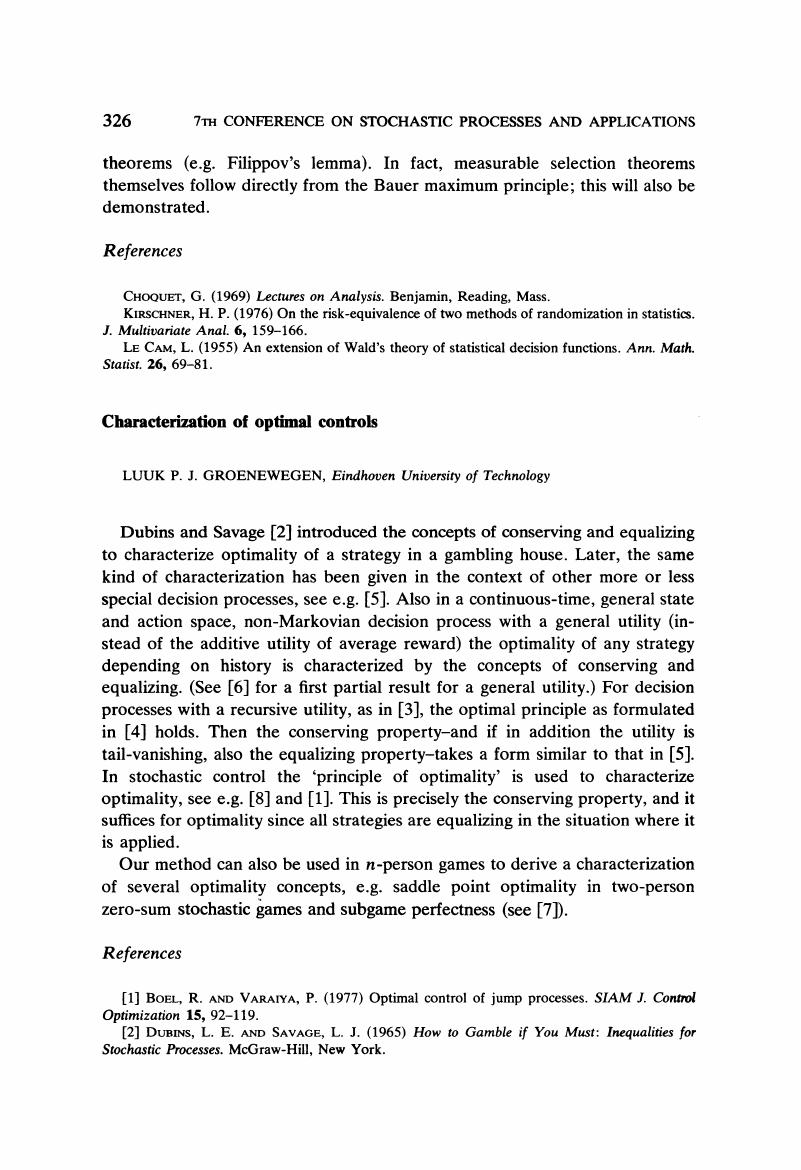No CrossRef data available.
Article contents
Characterization of optimal controls
Published online by Cambridge University Press: 01 July 2016
Abstract
An abstract is not available for this content so a preview has been provided. Please use the Get access link above for information on how to access this content.

- Type
- II. Contributed Papers
- Information
- Copyright
- Copyright © Applied Probability Trust 1978
References
[1]
Boel, R. and Varaiya, P. (1977) Optimal control of jump processes. SIAM J. Control Optimization
15, 92–119.Google Scholar
[2]
Dubins, L. E. and Savage, L. J. (1965) How to Gamble if You Must: Inequalities for Stochastic Processes.
McGraw-Hill, New York.Google Scholar
[3]
Furuwaka, N. and Iwamoto, S. (1973) Markovian decision processes with recursive reward function. Bull. Math. Statist.
15, 79–91.CrossRefGoogle Scholar
[4]
Gavish, B. and Schweitzer, P. J. (1976) An optimality principle for Markovian decision processes. J. Math. Anal. Appl.
54, 173–184.Google Scholar
[5]
Hordijk, A. (1974) Dynamic Programming and Markov Potential Theory.
Mathematical Centre Tracts No. 51, Amsterdam.Google Scholar
[6]
Kreps, D. M. (1977) Decision problems with expected utility criteria, I: Upper and lower convergent utility. Maths Opns Res.
2, 45–53.CrossRefGoogle Scholar
[7]
Selten, R. (1975) Reexamination of the perfectness concept for equilibrium points in extensive games. Internat. J. Game Theory
4, 25–55.CrossRefGoogle Scholar
[8]
Striebel, C. (1975) Optimal Control Of Discrete Time Stochastic Systems.
Lecture Notes in Economics and Mathematical Systems 110, Springer Verlag, Berlin.CrossRefGoogle Scholar




